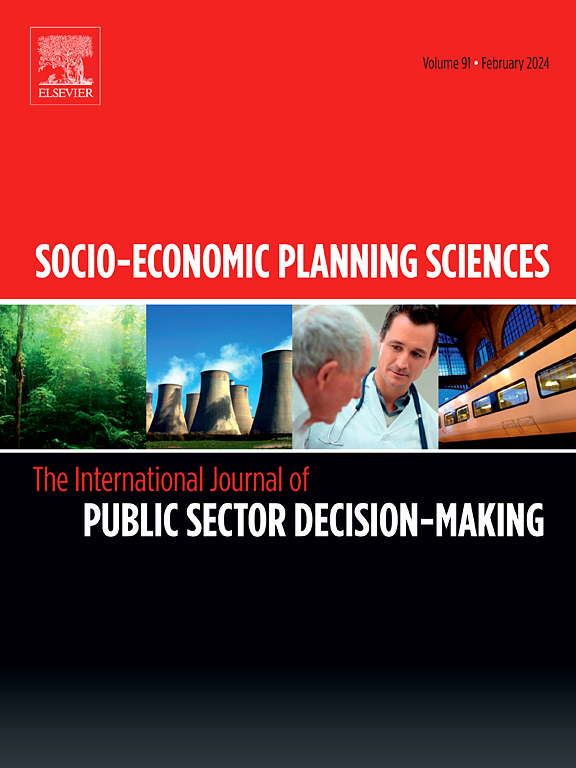The impact of tap water on household vulnerability to poverty: Evidence from rural China
IF 5.4
2区 经济学
Q1 ECONOMICS
引用次数: 0
Abstract
The improvement of clean water supply is crucial for the development of rural areas. This study examines the impact of tap water use on the vulnerability of rural households to poverty based on the China Health and Retirement Longitudinal Study (CHARLS) four-period household data. The findings reveal that, from an ex-ante perspective, the utilization of tap water significantly reduces poverty vulnerability. The channel through which the usage of tap water mitigates poverty vulnerability lies in enhancing residents' health and increasing the labor supply. Further analysis indicates that the use of tap water exerts a more pronounced impact on elderly families, those with higher levels of education, families living without their children, and individuals residing in areas deeply influenced by Confucian culture. Overall, this study contributes to a more nuanced understanding of the welfare effects associated with clean water utilization among rural communities, thereby providing important implications for developing countries or regions undertaking water improvement initiatives as a means to stimulate sustainable economic growth.
自来水对家庭贫困脆弱性的影响:来自中国农村的证据
改善清洁水供应对农村地区的发展至关重要。本研究基于中国健康与退休纵向研究(CHARLS)四期家庭数据,考察了自来水使用对农村家庭贫困脆弱性的影响。研究结果表明,从事前的角度来看,自来水的使用显著降低了贫困脆弱性。自来水缓解贫困脆弱性的途径在于提高居民健康水平和增加劳动力供给。进一步分析表明,自来水的使用对老年家庭、受教育程度较高的家庭、没有子女的家庭以及受儒家文化影响较深的地区的个人的影响更为明显。总体而言,本研究有助于更细致地了解农村社区清洁水利用相关的福利效应,从而为发展中国家或地区采取改善水的举措作为刺激可持续经济增长的手段提供重要启示。
本文章由计算机程序翻译,如有差异,请以英文原文为准。
求助全文
约1分钟内获得全文
求助全文
来源期刊

Socio-economic Planning Sciences
OPERATIONS RESEARCH & MANAGEMENT SCIENCE-
CiteScore
9.40
自引率
13.10%
发文量
294
审稿时长
58 days
期刊介绍:
Studies directed toward the more effective utilization of existing resources, e.g. mathematical programming models of health care delivery systems with relevance to more effective program design; systems analysis of fire outbreaks and its relevance to the location of fire stations; statistical analysis of the efficiency of a developing country economy or industry.
Studies relating to the interaction of various segments of society and technology, e.g. the effects of government health policies on the utilization and design of hospital facilities; the relationship between housing density and the demands on public transportation or other service facilities: patterns and implications of urban development and air or water pollution.
Studies devoted to the anticipations of and response to future needs for social, health and other human services, e.g. the relationship between industrial growth and the development of educational resources in affected areas; investigation of future demands for material and child health resources in a developing country; design of effective recycling in an urban setting.
 求助内容:
求助内容: 应助结果提醒方式:
应助结果提醒方式:


